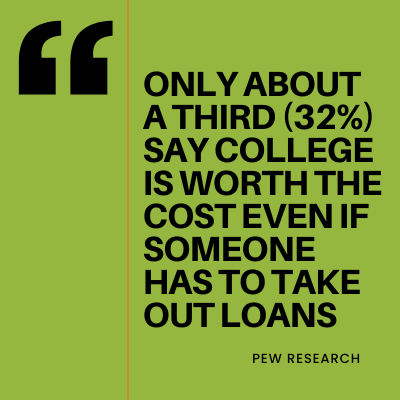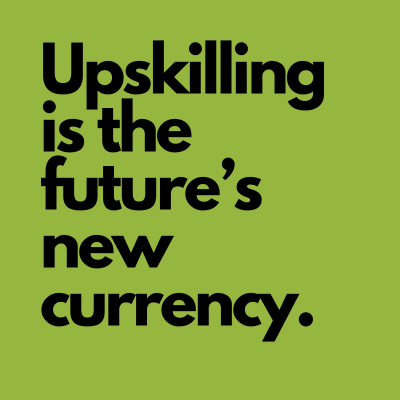As economic outcomes for young adults with and without degrees have improved, Americans hold mixed views on the value of college.
At a time when many Americans are questioning the value of a four-year college degree, economic outcomes for young adults without a degree are improving.
After decades of falling wages, young U.S. workers (ages 25 to 34) without a bachelor’s degree have seen their earnings increase over the past 10 years. Their overall wealth has gone up too, and fewer are living in poverty today.
Things have also improved for young college graduates over this period. As a result, the gap in earnings between young adults with and without a college degree has not narrowed.
The public has mixed views on the importance of having a college degree, and many have doubts about whether the cost is worth it, according to a new Pew Research Center survey.
- Only one-in-four U.S. adults say it’s extremely or very important to have a four-year college degree in order to get a well-paying job in today’s economy. About a third (35%) say a college degree is somewhat important, while 40% say it’s not too or not at all important.
- Roughly half (49%) say it’s less important to have a four-year college degree today in order to get a well-paying job than it was 20 years ago; 32% say it’s more important, and 17% say it’s about as important as it was 20 years ago.
- Only 22% say the cost of getting a four-year college degree today is worth it even if someone has to take out loans. Some 47% say the cost is worth it only if someone doesn’t have to take out loans. And 29% say the cost is not worth it.
These findings come amid rising tuition costs and mounting student debt. Views on the cost of college differ by Americans’ level of education. But even among four-year college graduates, only about a third (32%) say college is worth the cost even if someone has to take out loans – though they are more likely than those without a degree to say this.
Four-year college graduates (58%) are much more likely than those without a college degree (26%) to say their education was extremely or very useful in giving them the skills and knowledge they needed to get a well-paying job. (This finding excludes the 9% of respondents who said this question did not apply to them.)
Read full research article here.
For a demo of our products, click here.


